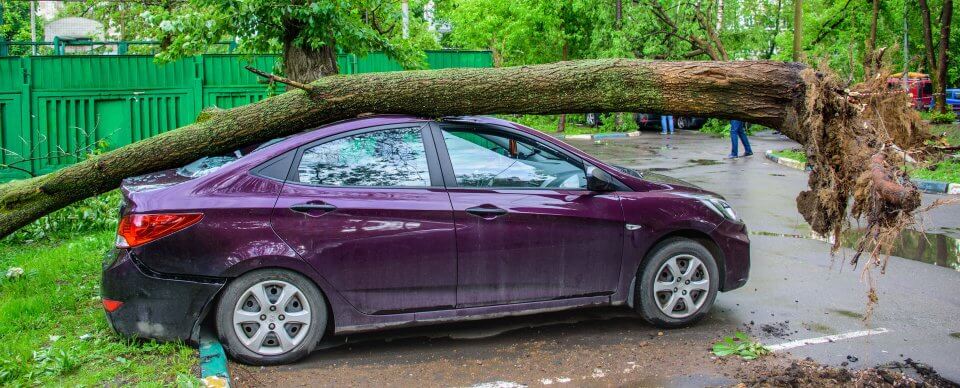
After an accident, having an auto insurance policy will cover some or all of the damage to your vehicle and the other party’s vehicle as well. If it’s proven that the other party was at fault, their auto insurance will pay for your repairs, but what happens when you cause the accident? Will your policy cover the repairs that you need in this case?
Having comprehensive coverage will cover things other than collision damage. A basic insurance policy will allow you to include these six coverages: Bodily Injury Liability, Medical Payments or Personal Injury Protection, Property Damage Liability, Collision, Comprehensive, and lastly, Uninsured and Underinsured Motorist Coverage. Each of these six coverages are priced individually and added to your total premium.
You’ll ultimately have to make the decision on whether you want to add both comprehensive and collision coverage. With comprehensive auto insurance, accidents that happen outside of your driving control, like theft, falling objects, explosions, earthquakes, hail, floods, vandalism, riots, or wild animal-related damages will be covered. With collision coverage, you’ll be covered for any damages to your car as a result of an accident with another car, hitting an object or property, and even damage by potholes in the road.
When does it make sense to have both comprehensive and collision coverage? Consider the following situations: During a storm, your parked car is crushed by a large tree branch that fell on it. Scenario two, you swerve around an object in the middle of the road, but end up hitting a tree and causing damage to your car. In the first scenario, your comprehensive coverage would take care of damages to your car because you were not driving the car at the time, you were not at fault, and did not cause a collision. In the second scenario, even though it was due to an act of nature, you were behind the wheel and in control of your car at the time of the accident; this would be covered by the collision portion of your policy.
When Should You Drop Collision Coverage?
Ask these three questions:
- What’s your vehicle’s actual cash value? If the value is fairly low, it may not pay to keep collision coverage. Check out the Kelley Blue Book to see what your car is worth.
- How much does your collision coverage cost? If your collision premium is $500 for a six-month policy term, you’re paying $1000 per year to insure your vehicle against damage that may never happen.
- What’s your collision deductible? If you ever have to use collision coverage, you’ll be on the hook for that amount.
An important thing to take into consideration about having comprehensive coverage is the value of your car. You may end up paying a premium that is more than your car is worth if it is not a newer car. Consider the deductible that you would have to pay, is it worth it to pay that much if your car needs repairs or would you be overpaying the depreciated value of your car?
Talk to your insurance agent to see if both insurance coverages are right for you or if you only need collision coverage. They can help you figure out the value of your car and let you know which deductible will be worth paying for your car’s current value. Also, discuss what disasters are most likely to happen in the area you live or work in, as your car will be susceptible to the damages that they may cause.
Now that you know the benefits of comprehensive auto insurance, why not get a free car insurance quote from Freeway Insurance? Freeway can provide you the best comprehensive and collision coverage in the state. Get a free car insurance quote online or contact us at (800) 700-5620 for more information.


